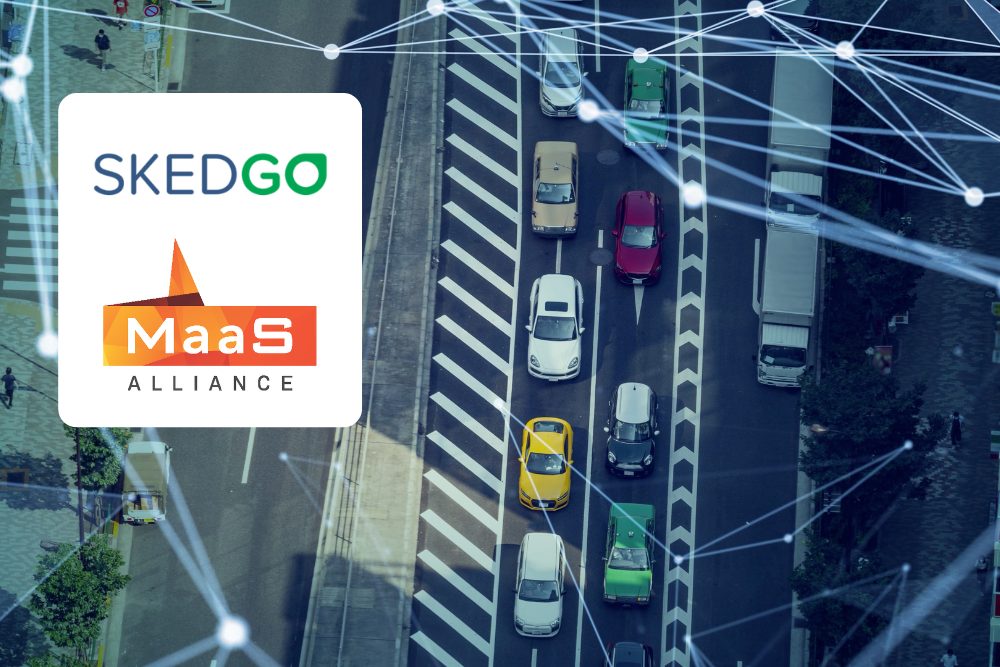
The 26th UN Climate Change Conference (COP26) took place in Glasgow from 31 October to 12 November 2021. Under the UK presidency, the COP26 summit brought parties together to accelerate the measures towards the goals of the Paris Agreement and the UN Framework Convention on Climate Change. This year, the COP26 declaration on zero-emission cars and vans saw a landmark global agreement launched by the UK COP presidency to signal the end of polluting vehicles and the EU Pavilion programme included several side events on Sustainable Transport Day on Friday 12 November.
Road transport accounts for 10% of global emissions, and its emissions are rising faster than those of any other sector. A shift to zero-emission vehicles is already underway, creating new jobs, bringing cleaner air to cities, and – increasingly – cutting the costs of car ownership. To meet the Paris Agreement, the transition needs to happen much more quickly, and it must include not only cars but vans, buses, trucks, and lorries.
COP26 Declaration on Zero-Emission Cars and Vans
On 10 November, the COP26 declaration on zero-emission cars and vans saw a landmark global agreement launched by the UK COP presidency to signal the end of polluting vehicles. The declaration on accelerating the transition to 100% zero-emission cars and vans was signed by national governments, states, regions, cities, vehicle manufacturers, businesses, investors and civil society, all committed to working towards 100% zero-emission vehicle sales by 2035 at the latest in leading markets, and by 2040 globally.
Sustainable Transport Day
On Friday 12 November, Sustainable Transport Day brought together key stakeholders from governments, civil society, industry, NGOs, intergenerational panels, local municipalities and others, to participate in the different sessions on sustainable transportation, including global shipping, aviation fuels (SAFs), approaches towards net-zero urban transport, sustainable tourism as a driver to achieve global climate neutrality, decarbonising aviation, maritime transport and road transport, supporting multilevel cooperation for transport in LDCs, a green mobility and transport system for EU local communities, and transitioning to zero-carbon in our cities: linking energy, climate and health.
Amongst many other discussions and achievements on this day, one of the Glasgow Breakthroughs at the World Leader Summit saw 30 countries agreeing to work together to make zero-emission vehicles the new normal by making them accessible, affordable, and sustainable in all regions by 2030 or sooner. Besides, several emerging markets agreed to accelerate the transition to ZEVs in their markets (including India, Rwanda, Kenya) and launch a new World Bank trust fund that will mobilise $200 million over the next ten years decarbonise road transport in emerging markets and developing economies.
Zero Emission Vehicle Transition Council
This goal guides the Zero Emission Vehicle Transition Council (ZEVTC), which discussed how international collaboration can support a global transition. The ZEVTC will launch its first annual Action Plan, which sets out areas for sustained international cooperation to accelerate the transition during 2022. Nineteen governments have also stated their intent to support the establishment of ‘green shipping corridors’ – zero-emission shipping routes between two ports. This will involve deploying zero-emission vessel technologies and putting alternative fuel and charging infrastructure in place in ports to allow for zero-emission shipping on key routes across the globe. The UK has pledged to shift to clean trucks by committing to the sale of most new diesel trucks between 2035 and 2040.
So, for the first time, Ministers and representatives from some of the world’s largest and most developed car markets came together to form the new Zero Emission Vehicle Transition Council. Hosted by the COP26 President, Alok Sharma, the Council discussed the accelerating pace of the global transition to zero-emission vehicles. The Ministers and representatives agreed to collectively address some of the key challenges in the transition to ZEVs, enabling the transition to be faster, cheaper, and easier for all. The Council was made up of Ministers and representatives from California, Canada, Denmark, European Commission, France, India, Italy, Japan, Mexico, Netherlands, Norway, Spain, South Korea and Sweden, the United Kingdom.
The following joint statement was released after the Council meeting.
- A rapid global transition to zero-emission vehicles is vital to meet the goals of the Paris Agreement on climate change. Road transport accounts for over 10% of global greenhouse gas emissions, and these emissions are rising. We need to dramatically increase the pace of the global transition to meet our Paris Agreement goals. This will also offer huge opportunities for jobs and growth, cleaner air, improved public health, and energy security and help balance electricity grids as we transition to clean power.
- In response to this global challenge and historic opportunity, we met today as the Zero-Emission Vehicles Transition Council to discuss how to increase the pace of the transition. As ministers and representatives from governments whose markets collectively account for around half of all new vehicle sales globally, we have a special responsibility. In dialogue with industry, businesses, cities and regions, and broader civil society, the actions we take will determine the pace of the global transitions to zero-emission vehicles. While our national contexts and policy approaches may differ, the change will be faster, easier and lower cost for all if we work together.
- We will use this forum to coordinate our efforts. We will act together to overcome strategic, political and technical barriers, accelerate the production of zero-emission vehicles, and increase economies of scale. We will boost investment, bring down costs and increase the uptake of zero-emission vehicles and the many economic, social and environmental benefits it brings.
- We will explore specific opportunities for collaboration in areas including:
- aligning the future of the road transport sector with Paris Agreement goals, focusing on the role of zero-emission technologies and key policies, while also considering the roles of alternative technologies in the transition,
- ensuring the transition to zero-emission vehicles is truly global, leaving no country or region behind
- ensuring the lifecycle (from production to scrapping) of zero-emission vehicles is sustainable and inclusive,
- ensuring the enabling infrastructure is in place, including electric vehicle charge points and hydrogen vehicle re-fuelling, in the context of decarbonising the power sector and growing the hydrogen economy,
- coordinating our innovation efforts.
- As we work to recover from the Covid-19 pandemic, we recognise that the decisions we make today will be critical for laying the foundations for sustainable and inclusive growth. As such, we commit to ensuring our recovery plans support an accelerated transition to zero-emission vehicles as part of broader efforts to boost growth and employment while promoting cleaner and more sustainable economies.
Source: UK COP26



